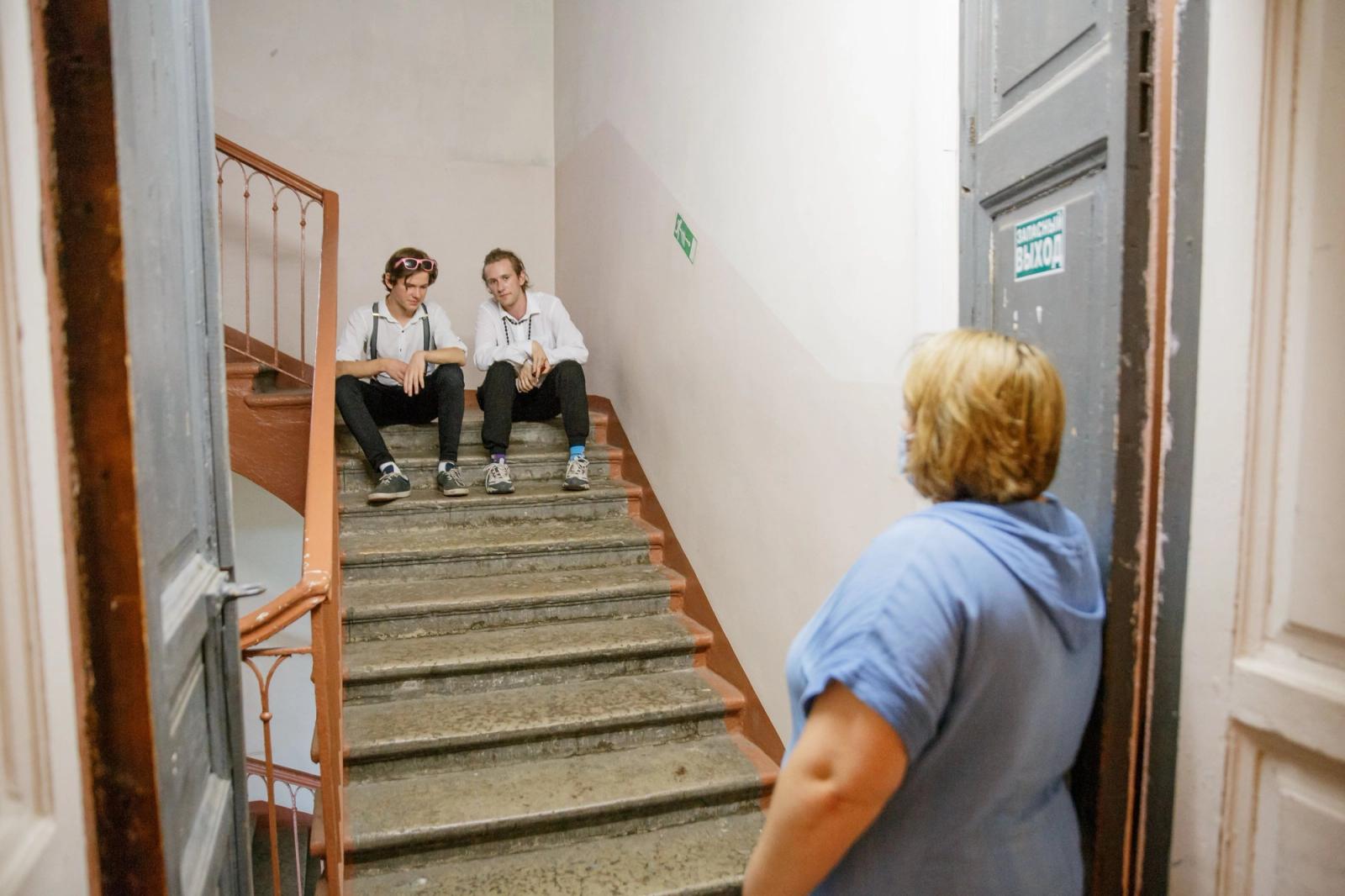school simulator 2021

about
What kind of person should a school produce? Most would say that it’s someone certain of their future, with a fully-formed identity But what kind of people actually graduate? Often they’re bewildered, lacking the answers to many of their questions and an understanding of what to do next The knowledge they get in class doesn’t always correspond to real life, and the ideals their education attempts to impart in them can be unattainable in practice
School Simulator invites you to go back in time for an hour and try to remember what problems you weren’t able to solve back then and what you weren’t able to work through As you sit in Literature class, you’ll reevaluate your experience at school and attempt to assess which of your mistakes formed your identity Your story will become one of the production’s storylines — you only have to find your own reflection in the simulation
Just like in real life, the School Simulator accounts for absent students and those who skip class (anyone can take their role, independently of whether or not they watched the show) They’ll have their own group in the VK social network where they can keep up with news online and chat with the other students about the latest events Feel free to keep in touch with your classmates by accessing the group every day, or limit your interaction to that single lesson
Performance recived a Golden Mask national theatre award in nomination "Conurs «Experiment»"
credits
Director
Pyotr Kurkin
Performers
Maxim Belukhin, Daria Movelyan, Abdulaziz Muindzhanov, Pavel Lyubenko, Oleg Shpak, Valeria Kuzminikh, Alexandra Klochkova, Dmitry Dagin, Alexandra Efremova, Artem Skvortsov, Irina Grigoryeva, Natalia Lyakh, Ksenia Chernysheva, Alexander Kanakin, Adel Pinsker, Julia Oseeva
Playwright
Ekaterina Kulakova
Set designer
Arina Slobodyanik
Game designers
Fyodor Slyusarchuk, Evgenia Patarakina
Sound designer
Daniil Koronkevich
Production manager
Oksana Presnyakova
Digital producer
Artem Arsenian
Production
The Access Point Festival
“
It's hard to say how the performers endured it; however, the audience reacted differently and not immediately. That's what a simulator is for—to, once embedded in the consciousness, make you replay the same situation over and over again, rehearsing a response to the offender, working through old traumas you never intended to tell your clone about, but they still surfaced.
—Alla Shenderova, Kommersant